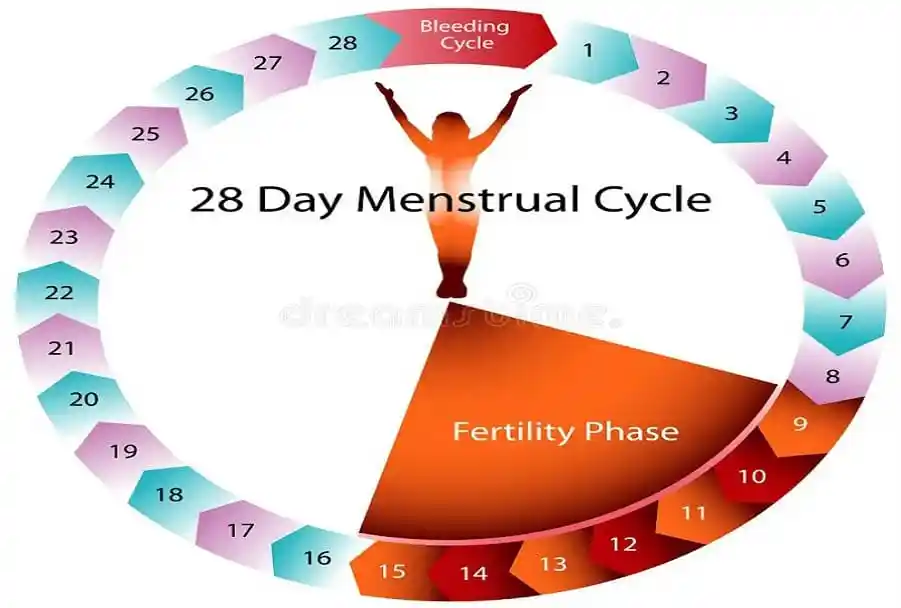Welcome to the empowering journey of understanding and managing your menstrual cycle! For those who may be new to the concept, menstruation is a natural process in which the uterus sheds its lining, typically occurring monthly in individuals assigned female at birth. Whether you’re just beginning or seeking to enhance your experience, this comprehensive guide is here to provide support and knowledge. Let’s break the stigma surrounding menstruation and embark on this journey with confidence and grace.
Understanding Your Menstrual Cycle:
Let’s dive into the basics of your menstrual cycle. It’s a monthly process preparing your body for possible pregnancy, typically lasting around 28 days but subject to variation (ranging from 21 to 35 days). Understanding the phases, from follicular to luteal, along with hormonal fluctuations, empowers you to appreciate your body’s natural rhythms. We’ll also explore the average duration of menstrual flow and variations in cycle length among individuals.
Tracking Your Cycle:
Tracking your menstrual cycle is pivotal. Utilize period tracker apps or traditional calendars to note start and end dates, along with symptoms like cramps or mood changes. This information enables proactive management and fosters a deeper understanding of your body’s unique patterns. Additionally, experimenting with tracking methods allows you to predict ovulation and identify irregularities. I’ll also provide recommendations for popular period tracking apps and resources for those who prefer analog methods.
Choosing Menstrual Products:
Selecting the right menstrual products is crucial. Explore options like pads, tampons, menstrual cups, and period underwear, considering factors such as comfort, absorbency, and environmental impact. Opt for products made from safe materials to prioritize both your health and the planet. Experiment with different products to find what works best for you, and consider creating a self-care plan tailored to your menstrual cycle. I’ll also include a brief explanation of how each type of menstrual product works to manage menstrual flow.
Maintaining Hygiene:
Maintaining proper hygiene is essential for comfort and health. Change menstrual products regularly and practice good genital hygiene with mild soap and water. Remember to wash your hands before and after handling menstrual products to prevent infections. Dispose of products responsibly and consider eco-friendly alternatives to minimize environmental impact. I’ll also address common hygiene concerns, such as avoiding scented products and practicing safe sex during menstruation.
Managing Discomfort:
Many experience discomfort during menstruation, but there are strategies to alleviate symptoms. Beyond pain relievers, try heat therapy, gentle exercise, or herbal remedies. Prioritize hydration and a balanced diet to support overall well-being during your cycle. If discomfort becomes severe or significantly impacts daily life, consult a healthcare professional for personalized advice. I’ll offer alternative remedies for managing menstrual discomfort and mention the potential benefits of incorporating relaxation techniques or mindfulness practices into daily routines.
Dealing with Emotional Changes:
Hormonal fluctuations may lead to emotional changes; it’s important to address them with compassion. Engage in relaxation techniques like meditation or seek support from loved ones. Remember, your emotions are valid, and self-care is essential. Understanding the underlying reasons for emotional changes can help normalize your experiences. I’ll provide reassurance that mood swings and emotional fluctuations are normal responses to hormonal changes and encourage open communication about emotions related to menstruation.
Seeking Medical Help When Needed:
While some irregularities are common, sudden changes in menstrual patterns or symptoms should be discussed with a healthcare provider. Watch for signs of excessive bleeding, severe pain, or irregularities in your cycle. Advocate for your health and consult a healthcare provider if concerns arise. It’s essential to prioritize your well-being and seek medical help when needed. I’ll list specific warning signs or red flags that warrant immediate medical attention and encourage individuals to advocate for their health by seeking second opinions or consulting specialists if necessary.
Be Kind to Yourself:
Above all, practice self-compassion. Embrace your body’s natural processes and prioritize your well-being. Incorporate self-care rituals into your routine, and remember that your menstrual journey is uniquely yours. Consider creating a self-care plan tailored to your menstrual cycle, scheduling extra rest during menstruation, or engaging in activities that bring joy and relaxation. I’ll stress the importance of self-compassion and self-care practices beyond the menstrual period, emphasizing the need for ongoing holistic well-being, and provide examples of self-care rituals or affirmations that individuals can incorporate into their daily routines to cultivate a positive mindset.
Congratulations on embarking on this journey of self-discovery and empowerment! By implementing the tips and strategies outlined in this guide, you’re equipped to navigate your menstrual cycle with confidence and grace. Let’s continue to break barriers and foster open conversations about menstruation, empowering ourselves and others along the way. Here’s to embracing our menstrual journeys with authenticity and resilience!

